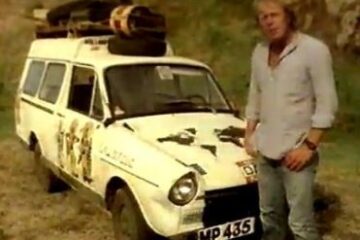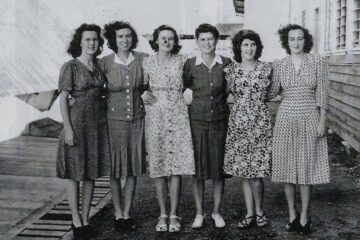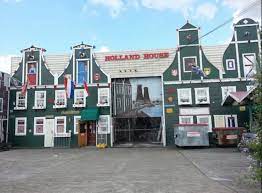
It all started with Engel Sypkes, an Australian businessman who migrated from the Netherlands to Tasmania in 1951. Shortly after his arrival, he opened a small general store in Stanley. After a trip to the United States, Sypkes was exposed to modern merchandising methods, which inspired him to open his first Purity supermarket in Hobart in 1958.
Coincidently Roelf Vos emigrated to Australia in that same year and actually arrived on the same plane. He started a retail chain in northern Tasmania and the two became fierce competitors.
Under Sypkes’ leadership, the Purity supermarket chain grew rapidly, and by the time of its sale to Woolworths in 1981, it had sixteen stores throughout southern Tasmania.
Their sons Peter and Rudie Sypkes founded Chickenfeed in 1990, a chain of discount variety stores located throughout Tasmania. The stores offered a range of products, including household items, clothing, toys, and hardware, at discounted prices. The business was successful, and in 2001, it was sold for an estimated AUD $35 million.
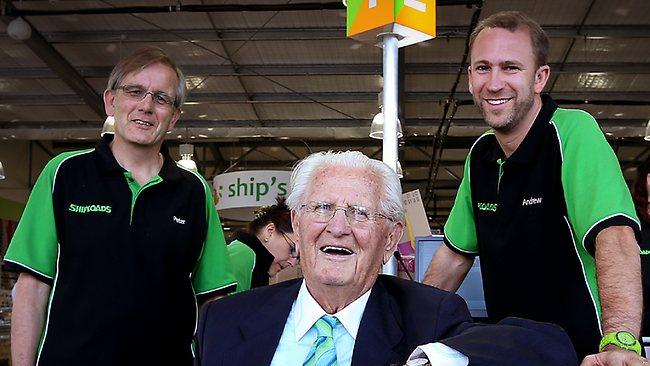
Peter Sypkes later went on to become involved in the technology industry. He co-founded Aconex, a Melbourne-based software company that provided online project management solutions for construction and engineering projects. Aconex was listed on the Australian Securities Exchange in 2014 and was later acquired by Oracle Corporation in 2017 for an estimated AUD $1.6 billion. As part of the takeover bid, Peter sold his holdings in Aconex for an estimated AUD $12.8 million.
In addition to his business ventures, Peter Sypkes was appointed as the honorary consul of the Netherlands to Tasmania in 2012. He is also the patron of the Dutch Australia Society.
Rudie Sypkes has largely kept a low profile and has not been in the public eye as much as his brother Peter. However, he has been involved in various business ventures and has contributed to the Tasmanian community in various ways.
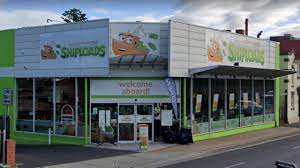
In 2011, Rudie’s son Andrew Sypkes invested in the Shiploads chain of discount stores, which operates in Tasmania and Victoria. This was shortly before the collapse of Chickenfeed, the main competitor of Shiploads and a former company of the Sypkes family. There were allegations that the Sypkes family’s ownership of a number of the Chickenfeed store locations contributed to the company’s demise, but these allegations were denied by the family.
Andrew Sypkes is also an investor in Varicon, a construction tech company that provides software solutions for the construction industry.
Engel Sypkes passed away on 13 November 2015
Interview with Engel Sypkes
Location: 526 Sandy Bay Road, Sandy Bay (his home)
Date & Time: Friday 23 January 2015 @ 3.30 pm
Present: Engel & Marie Sypkes, Kees Wierenga
Background notes regarding the contribution by Engel to the transformation of the Grocery industry in Tasmania from corner shop to self-serve and computer-based knowledge systems, 1950s to 1980s.
- Roelf Vos and Engel Sypkes were both in successful drapers in different towns in the Netherlands.
- Roelf met Engel six weeks before emigrating in 1952 “to start a new life, following the bad effects of World War Two.”
- Roelf’s wife has the same surname as Engel’s (1st) wife, but they are not related.
- Engel arrived in Ulverstone, then moved to Stanley, then to Smithton, then to Hobart (dates are in NAA records).
- He listed his occupation with the Dept. of Immigration as “upholsterer” for two reasons:
- Because he could not find the English word for carpet layer (work he had done in Holland).
- Because emigrants with trade skills were valued more highly by the Australian government.
- For good measure, he also listed his occupation as draper.
- He listed his occupation with the Dept. of Immigration as “upholsterer” for two reasons:
- When he lived in Smithton, he noted that edible offal from a local abattoir was dumped in a branch of the Duck River.
- He also noted that eels thrived in this river (harvesting them was an idea that never got legs but he gave it a thought).
- Liver for human consumption was rated so poorly, it could be had from the local butcher f.o.c.
- Engel was interested in exploiting that offal because it included glands which had high medicinal value in Europe.
- Engel made preliminary arrangements to send offal to Europe.
- He also made arrangements to travel to overseas customers to finalise details and make deals.
- Arthur Ambrose was a fellow draper. He had several clothing stores on the N West coast.
- Arthur suggested the trip overseas should include the USA to investigate reports of new, greenfield shopping centres, which were later surrounded by suburbia.
- Engel and Roelf were warm to the idea because, although the first five years, first as travelling salesmen and then as small shop operators, were rewarding, it did not fulfil their business inclinations.
- Roelf did not make the first trip with Engel and Arthur. Initially, he did not think that he needed training but later changed his mind and went with Engel on Engel’s second trip to catch up with further developments in retailing.
- Engel and Arthur witnessed self-service in American shops, and the American way of retailing food in the self-service way came to occupy their minds.
- The two men did a course in Dayton, Ohio, with NCR (National Cash Register) where they learned about shopping ratios, such as car parking spaces per square metre of shop floor, shopping trolleys per square metre, etc.
- Engel eventually made three trips to the USA, including one (the 2nd) with Roelf Vos. Key to each trip was the slogan “3Ms”:
- Monkey see, monkey do (=learn from others).
- Modern merchandising methods.
- Aka make more money.
- On return from his first trip overseas, Engel could not get an export permit for (mostly pig) offal to Europe – he was considered an outsider to the industry, an intruder, and possibly a meddler.
- Failing his export dream, Engel purchased an established grocery store in Sandy Bay.
- Roelf stayed in Launceston, purchased a store there, and gave the store his own name. The stores were closed and modified to be self-serve stores.
- Self-serve was a new concept in 1957 – included cash-only transactions.
- Engel declined phone and account orders from well-heeled customers, which annoyed them.
- “On opening day a telephone call was received and I (Engel) can remember the conversation up till today clearly. It went like this –
‘This is Mrs So and so (a prominent Sandy Bay resident) and I read your advertisement in the paper. Your prices are so much lower than what I pay my grocer that I would like to place an order with you right now and I would also like to open a permanent account.’” - The reply: “‘Thank you, Madam, but we cannot do that. We have started a new way of doing business. The principle is that if you want those products and those low prices, you have to come to the store and get them. You select them from the shelf, take them to the cash register, and pay cash. We will then carry the purchased goods to your car.’”
- The reply was: “‘No thank you.’” Her phone was slammed down.
- The PURITY name is derived from the Dutch word Zuiverheid.
- Zuiverheid is both an adjective and the name of a business in the Netherlands.
- The business called Zuiverheid was in the milk processing industry (de zuivel industrie).
- Engel had seen the factory and was impressed by the all-white uniforms of the staff. Purity staff were given all-white uniforms to promote the idea of freshness and cleanliness, but this proved impractical for the retail industry.
- Advertising – the key to success:
- Promotions:
- Customers traded 2/- pieces minted in a nominated year for 1lb of butter. Engel ensured financial viability by surveying mint year distribution.
- Supplier Agreements:
- Purchase agreements with suppliers reduced advertising costs.
- Radio Campaigns:
- A slogan-based campaign and jingles (one inspired by Mark Cook Cars) engaged the public.
- Promotions:
- Computers:
- David Ambrose led computing initiatives, pioneering the use of PLUs in Australia.
- Early adoption of computing boosted stock turnover and profitability, setting industry benchmarks.
- Eventually, Purity, with its 13 stores, provided approximately 24% of total grocery consumption in southern Tasmania, while Roelf Vos achieved similar results in the north.
Reflection:
Now in 2015, Engel, aged 93, remains proud of his legacy in transforming the Tasmanian grocery industry, even if he leaves shopping to his wife!
See also
